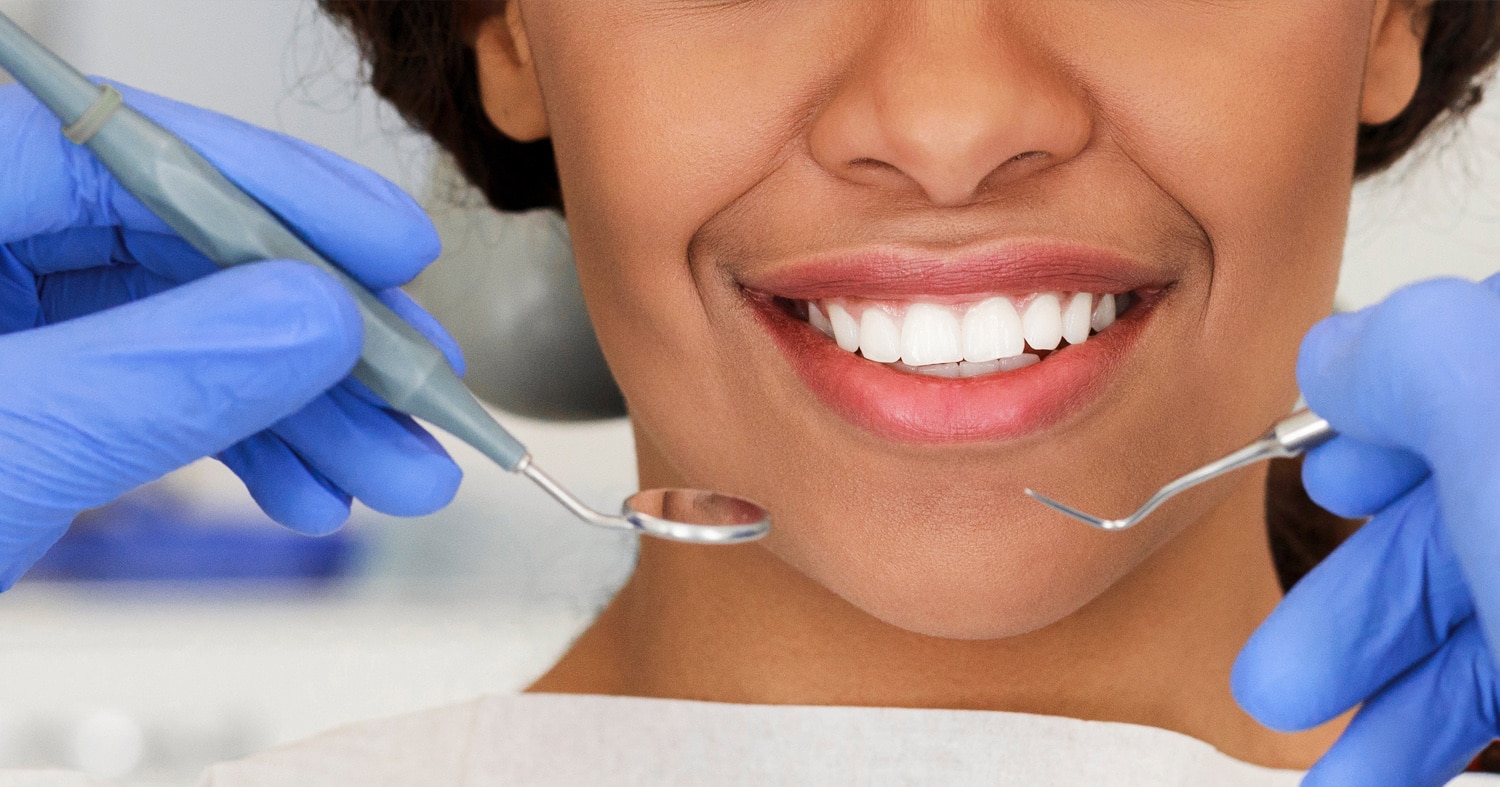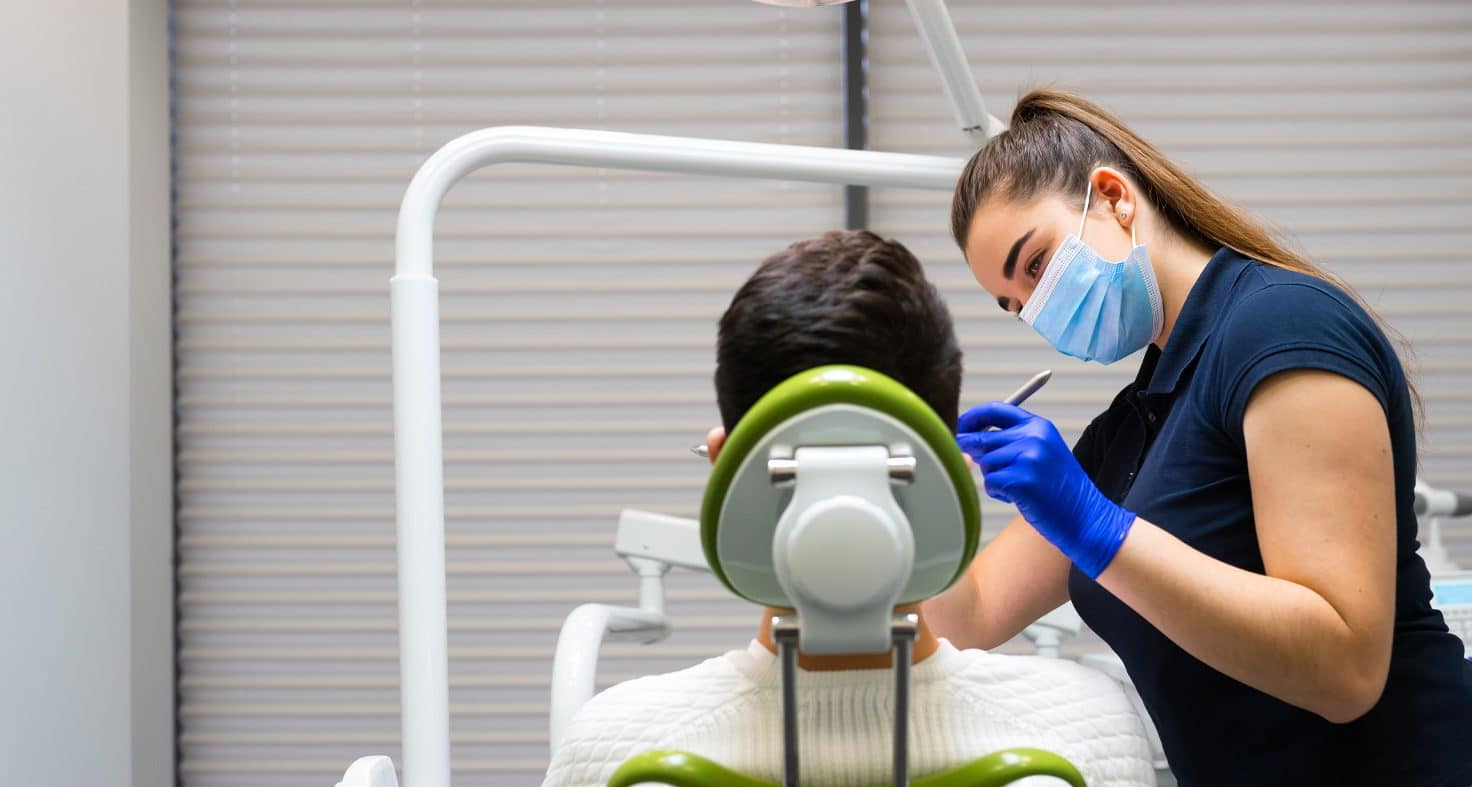Thank you to Mia, James & Shelia. You've been really professional, made me feel comfortable and informative every time I've been. Highly recommend.

Check out Deansgate Dentals independent testimonials on Google Reviews
Deansgate Dental Surgery
Google Reviews
Dental crowns.
Sometimes known as a caps, crowns are carefully fitted covers that sit over an existing tooth to protect it from further damage, and to improve your overall smile. Crowns can hold cracked teeth together and support bridges, and they are often applied as the final step in root canal treatment. They can also cover discoloured teeth to improve the appearance of your teeth.
Why you may need a crown?
A crown is likely to be required if there is no longer enough healthy tooth tissue left to sufficiently hold a filling or used to cover and protect damaged or weak teeth. They can also improve the appearance of misshapen or discoloured teeth and act as protective cover which fits over your remaining tooth. A crown may also be placed as the final stage following root canal treatment, as this has proven to be the most successful way of sealing and protecting the tooth.
What’s involved?
Preparation time will vary depending on the condition of the damaged tooth. Your tooth will be carefully reshaped, to ensure that it can carry the crown. In most cases we will take a highly accurate impression of your tooth and send it to our state of the-art digital laboratory where our team of technician’s use sophisticated computers to design your custom crown. These computers will then craft, mill and colour the crown to match the adjacent teeth. Treatment is usually provided over 2 visits. After the tooth is prepared and the impression is taken at the first appointment, a temporary crown is worn to protect the tooth for around 2 weeks while the crown is made.
What are crowns made from?
The application of crowns is one of the longest-standing dental procedures. We can date their use back to the 5th century and the ancient Etruscans, who used gold and silver to ‘cap’ problem teeth. Dental techniques have developed since then, and in today’s practices crowns can be made from a variety of materials:
- Metal, including gold
- Zirconia
- Porcelain
- Porcelain fused to metal (known as PFM)
- Porcelain fused to zirconia
- Ceramic
- Resin
We recommend the use of porcelain crowns, as they are durable and can be crafted to match the natural shade of your teeth.
How long will a crown last?
A permanent crown can last between five and 15 years, depending on your habits, lifestyle and oral care routine. Teeth grinding can put pressure on a crown, leading to cracks and possible damage. If you know that you suffer from clenching or grinding, speak to your Deansgate Dental dentist; they will be able to provide you with advice and possible solutions (such as a mouthguard) to help protect your crown and keep it looking its best into the future.
How shall I look after my crown?
You can treat your crown like a normal tooth. While it does not require any particular care, remember that it acts as a cover over the top of your natural tooth and so decay and gum disease can still occur without a good oral health routine. Keep up regular visits to your local Radcliffe dental practice and remember to continue to floss around the tooth. When flossing, try to pull the floss through your teeth rather than upwards – sometimes pulling up and out can catch on your crown and contribute to wear and tear.
If you think that you require crowns, or would like further information on the procedure, contact Deansgate Dental in Radcliffe today on 0161 725 8090.
Dental inlays and onlays
Perhaps you’ve not visited the dentist recently and since your last check up you’ve spotted some decay, or part of a tooth is noticeably suffering. Now is the time to call our Radcliffe team to make an appointment. If decay has already set in and caused damage to the tooth, it may be that a filling is not sufficient. The next step to cover the damage and restore your tooth to its natural looking state is an onlay or inlay. Onlays and inlays bridge the gap between a small filling and the need to cover the tooth entirely with a crown, and will stop decay before it develops into something more serious.
The art of preserving your natural teeth
When it comes to dentistry, our experts work hard to maintain and keep your teeth as healthy as possible for as long as possible. The longer you can keep your natural teeth, the better it is for your overall oral health. Inlays and onlays are a method of preserving teeth which have been attacked by decay. While crowns are an option for damaged teeth, they often require your dentist to file down or remove a little of your existing tooth, in order for the sleeve to fit nicely over the top and stay in line with your existing teeth. Onlays and inlays fit onto your teeth in a way that maintains all or most of your current tooth structure.
Do I need an inlay or an onlay?
Larger cavities are best treated with inlays and onlays, as fillings simply won’t manage the damage. Inlays are very similar to fillings in that they close up a gap. An inlay sits inside your tooth, while an onlay is fitted to the outside of it and is usually used to build up any area of tooth damage or if your tooth has fractured. It is often the back teeth that require this kind of attention, as the surfaces of the ‘chewing’ teeth are particularly vulnerable to developing cavities.
You may also have an amalgam (silver) filling that you would like replaced with a more natural coloured onlay or inlay. Our Deansgate Dental dentists can remove old fillings, clean out any existing decay and replace unsightly dark patches with a more natural looking treatment.
What are onlays and inlays made from?
Like fillings, inlays and onlays are usually made from porcelain or composite resin to blend naturally with the rest of your teeth and provide lasting strength and reinforcement to your otherwise damaged tooth. It is possible to get gold inlays and onlays, however composite resin and porcelain choices make for a solution that is hardly noticeable.
How long does an onlay or inlay take to fit?
Treatments will take two appointments as the carefully moulded part to replace your tooth needs to be crafted in a dental laboratory. On your first visit, your Radcliffe dentist will take a mould of the tooth, which will be used to create the inlay or onlay. Your finished inlay or onlay will then be carefully fitted during your second appointment.
Do you need to book a check up? Early detection of decay is the best way to treat it. Contact Deansgate Dental in Radcliffe on 0161 725 8090 today to make an appointment.
Connect with the Surgery through our social media profiles.
Dental bridges.
Why might I need a bridge?
A bridge is a replacement for one or more missing teeth. It is a good solution if you don’t have many missing teeth, or if your missing teeth are all on one side of your mouth. It is important to replace missing teeth to prevent your remaining teeth from drifting into the empty space, as well as to restore the appearance of your smile.
What is a bridge?
A bridge is made up of two or more crowns that fit to teeth on either side of the gap, which serve as anchors, along with a false tooth in-between.
A bridge will support the false tooth or teeth, and reduce the susceptibility of remaining teeth to decay and gum disease.
How is a bridge fitted?
Your Deansgate Dental dentist will examine your teeth and jaw at your first appointment to evaluate the best course of action. If you have strong enough teeth with good bone support then a bridge could be a great option to restore your smile.
An impression will be taken of your mouth, from which a plaster model will be built of your teeth and gums to enable your dentist to understand how your teeth bite together. Your teeth will then be prepared so that the bridge will fit: the teeth either side of the gap need to be reduced in size to fit the fixings and accommodate the bridge comfortably.
A second impression of your teeth is taken and used to build a bridge that looks natural and matches your mouth exactly. The bridge will be made from metal, porcelain or a combination of both, and the replacement tooth that’s fixed between your bridge will be colour-matched to the rest of your teeth. While your bridge is being made, your dentist may fit a temporary bridge or crown to protect the exposed gum and teeth.
When the bridge is ready, it will be fitted carefully at Deansgate Dental, who will make sure it is comfortable before it is fixed in place.
How do I look after my bridge?
You will need to clean your bridge and the false tooth or teeth it supports every day. Your dentist will show you how to use interdental brushes or special floss to ensure your bridge is thoroughly clean. To prevent damage, it’s best to avoid chewing hard foods and ice. By taking good care of your bridge, you can ensure it will last for many years.

